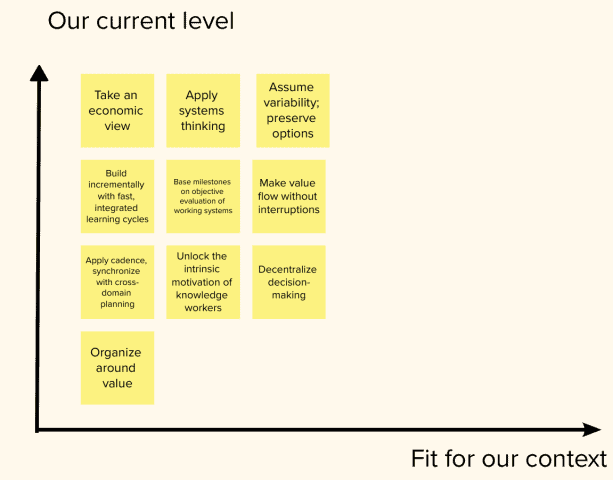“Can we just start with day 2? (Fast forward the WHY/WHAT)”
If only I had a dollar for every time I heard this statement in an agile workshop (and was smart enough to invest in NVDA at the time…)
Even before we became addicted to short-form content, we never had the patience for the history lesson that most of these agile workshops started with. Workshops morphed to spend more time on practices and less time on principles.
A side effect of this widespread focus on the HOW is that more and more practitioners and leaders are think they don’t need workshops or formal training anymore. They can learn the HOW on their own, from a book, from AI, or from free videos.
The result? Whether it’s due to shallow HOW-focused training and materials or just skipping the training, We’re seeing people who practice without understanding the WHAT and the WHY.
Without a solid grasp on the Intent, It is hard to adapt to the context.
The other extreme is also far from ideal. The whole “Agile is Dead” movement is “throwing the baby out with the bathwater” (what Ron Jeffries called “We tried $baseball$ and it didn’t work” – replace $baseball$ with XP, Scrum, SAFe, POM)
What’s an alternative to focusing on the HOW?
Here’s what how I bring both Principles and Practices together, in a way that is intent-driven and context-aware.
It starts with getting the organization unstuck (whether already “using” Agile or not).
I often start with this exercise:
- Create an applicability/maturity matrix (see image)

- Populate with principles or practices you’re considering. (I have a list here I often use, but it could also be the SAFe principles, Agile Manifesto principles, XP principles, or whatever you fancy)
- Facilitate a conversation about applicability/fit, ranging from “fit like a glove to our world” to “why the heck would this work for us?” This can drive interesting conversations.
- Similar – for “Where are we?” (maturity) – this is more about whether we are leveraging this principle/practice right now. if not, what would need to be true to leverage it?
- It’s helpful to start with applicability and only then talk about current state – because we’re already in the mindset of which principles will be helpful. (also – you can skip the principles you don’t think will be helpful )
You could do this on your own for self-reflection or together with colleagues. (Having some external expertise to challenge your assumptions doesn’t hurt…)
In my experience, after identifying what principles will be beneficial, exploring the practices/patterns available to instantiate these principles is a much healthier, fruitful conversation.
PS My focus on Enterprise Kanban and, later on, Portfolio Agility emerged after seeing how often traditional portfolio-level processes/behaviors/metrics are lurking under the surface, inhibiting the agility of these organizations I was trying to help.